256 (City of London) Field Hospital, based in Walworth, have recently conducted Exercise Medical Challenge (EMC19) with the help of other Reserve units from across London.
The Army Medical Services Reserve and the National Health Service (NHS) are key partners in the delivery of both military and civilian healthcare so the exercise was an attraction event for members to build relationships between the two government organisations.
It was also an opportunity to understand how the Army Reserve works and provides the opportunity to learn about contingency planning, resourcefulness and adaptability.
“The event took place at Longmoor Training Camp near Liss on Wednesday the 24th of July 19.
There were ninety seven NHS staff from various roles across London and the South East including Theatre Nurses, Ward Sisters and specialised individuals involved in the exercise who were keen to develop their knowledge whilst at the same time have some well-deserved fun.
The staff were split into nine teams with approximately nine to twelve individuals on each team.”
The exercise was aimed to test and build leadership skills, develop teamwork, enhance communication, test individual resilience and develop decision making abilities, say the British Army.


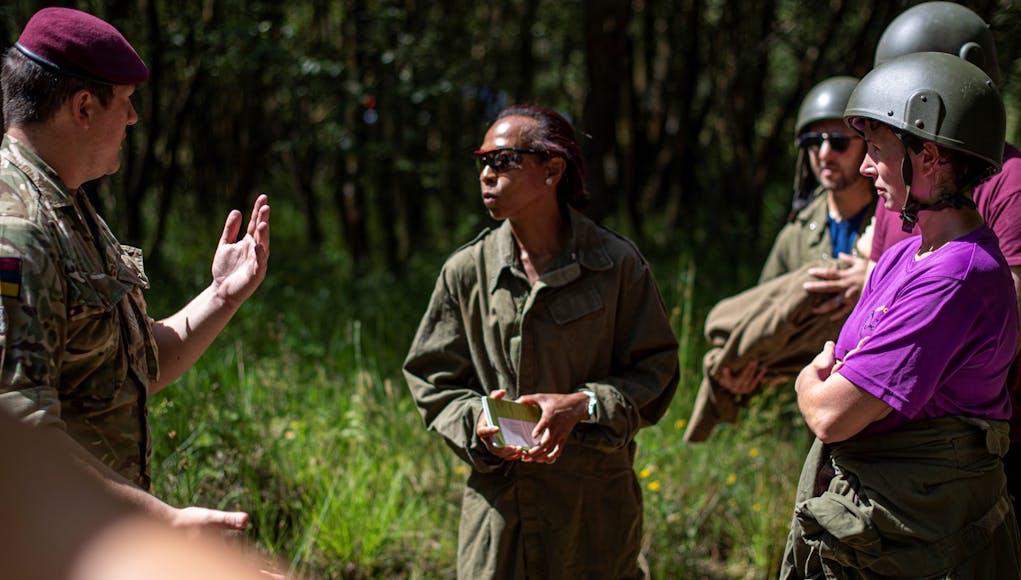

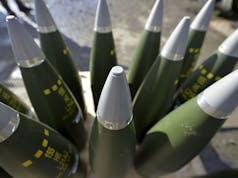
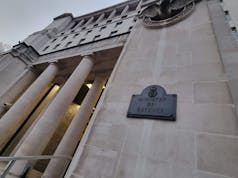
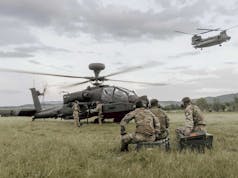
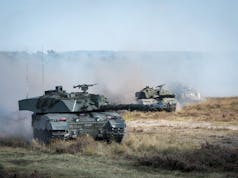
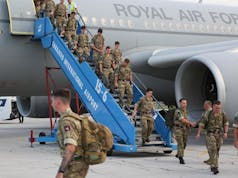


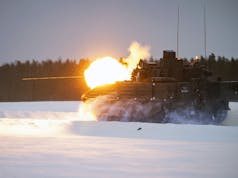

I would advocate a Royal Navy manned and operated hospital ship, staffed with NHS equipment and personnel to travel the world providing medical services funded by the foreign aid budget. Helicopter capable, mexifloat capable etc.
Why not?
The issue is politics.
If it is a Royal Navy ship, crewed by Royal Navy personnel, then there will be those who decry it as foreign aid being spent on a military ship. Especially if there’s a single weapon on board it, even defensive ones. Even a single GPMG would have some (I.e. Corbyn & co) claiming foreign aid budget is being used for warships.
If it is built using foreign aid budget but owned & crewed by RN, there is also a conundrum regarding what happens to it in wartime?
If we were to go to war, let’s say with Iran just for example, and the ship was off the coast of somewhere in Africa following a natural disaster, would it stay in place on its humanitarian mission or join the fleet sailing to Iran to provide medical assistance to our forces? If it leaves that causes problems: we are seen abandoning people in need in order to take the ship to war, a ship funded by foreign aid.
The same problem would be if the ship were jointly funded by foreign aid budget and MoD.
Then don’t put any weapons on it
The US doesn’t have any weapons at all on it’s 2 hospital ships, they’re non combatant vessels.
And like the US we could crew it with civilians with a RN uniformed presence on deployments
If you look at the deployments over the last 30 years for those US ships, what a service they have done, it would be money well spent.
Still leaves the biggest question of whether its priorities would be helping our wounded in wartime or providing humanitarian relief, if war broke out.
The issue is staff…..we are right in the middle of a crisis in Dr and nursing numbers, with EDs, MIUs, GP practices and community hospitals closing all over the country because we don’t have the staff to keep them open….
You can build a ship in a couple of years it takes a decade to create an experienced clinician.
An often unsung part of the Army Reserve.
There are dozens of reserve Field Hospitals, making up the bulk of 2 Medical Bde.
And only 3 regular ones. Which I believe are reducing to two.
Possibly the ONLY benefit from the Afghanistan debacle was the development of triage, Golden Hour and resuscitation skills and techniques that served combatants so well there but also transferred back to the UK NHS. So many more people came back alive and stayed alive than in other conflicts. And places like Bastion were staffed by Reservists and NHS staff.
God bless each and every one of those people ..
Chris we’ve always been very good at triage and trauma life support. The issue is often around what sort of on call surgeons/definitive care you have available after stabilising and how easy it is to transfer to definitive care vs the injury you have….if your bleeding out through a major vessel and the on call surgeons is a vascular guy your ok if it’s a neuro your fucked. If your rocking a major head injury and the closest neuro team is a 3 hour transfer away..,guess what.
It why the NHS has spent decades trying to close smaller EDs in little DGHs and go to regional trauma centres, hyperacute stoke centres etc, unfortunately the public love their local services and no end of telling them small eds are a bit rubbish and not very safe will change their mind.
@ Jonathan – we share admiration for the NHS and the military. All I was recalling was this from the BMA in 2014 which said:
“[…] these advances have been underpinned by conscientious research by dedicated clinicians under arduous circumstances and are now being translated into advances in trauma care within the NHS. I salute all those doctors in the armed forces who have played their part in this.”
https://www.bma.org.uk/news/2014/september/frontline-to-frontline
Yes a lot of the learning is around speed to definitive care, and numbers seen, which is the big centre idea…unfortunately it’s not generally what the public prefer. It’s that difficult balancing act of knowing what’s best for people as an expert vs what they actually want vs what they tell you they want vs what your resources can deliver, planning and delivering healthcare is satisfying but incredibly frustrating.
Sadly the greatest improvements come in extremis.
The falklands was a great lesson in not warming your patient to much.
Our best learning has aways come out of the US, the unfortunate long term levels of gunshot wounds has been leading and change trauma care for years.
Afghanistan has given (due to the nature of the conflict) some of our best learning in keep people alive with mixed injury Blast, burn, head injury, multiple limb loss.